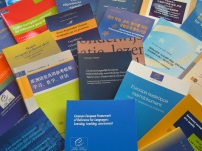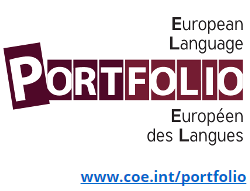Finally available: a new ambitious, updated site dedicated to the Common European Framework of Reference for Languages: learning, teaching, assessment (CEFR)
www.coe.int/lang-CEFR

The CEFR was created in order to provide a transparent, coherent and
comprehensive basis for the development of language programmes, curriculum guidelines and teaching/learning materials, as well as to assist the assessment of foreign language proficiency.
The Framework is particularly well-known for its 6-level proficiency scale (A1 < C2), which can be divided into different categories in order to create transparent and coherent language proficiency profiles – a major innovation in the domain of European education.
However the CEFR does not begin and end with the levels, nor is it intended as a standardisation instrument. As a reference tool, its aim is to facilitate transparency and coherence in language education at all levels: curricula, teaching, assessment and teacher education.
Available today in 40 languages – including non-European ones – the CEFR has enjoyed an increasing success and is now used in a significant number of countries on several continents. The implementation of the CEFR has also benefitted from development projects and training opportunities offered by the European Centre for Modern Languages (ECML-Graz), operating under a partial Agreement of the Council of Europe, which complements the Language Policy Programme (Education Policy Division, Strasbourg).
Finally, the new CEFR website offers a range of different resources, contributed by major European institutions and developed in different research projects and investigations.
Innovative and ambitious, the CEFR website will continue to evolve. In a few months’ time, other key resources will be added, in particular a new CEFR Companion Volume.

Developed parallel to the CEFR, the European Language Portfolio (ELP) is a tool inte
nded for learners, young and old. The new site offers concrete support and many resources. The portal has two entry points for the two complementary sections managed by the Language Policy Programme and the European Centre for Modern Languages.
- Developing an ELP (Language Policy): orientation, support for the autonomous development of an ELP model, descriptor bank, self-assessment grid, lists of validated or registered models, etc.
- Using an ELP (ECML): a wide range of resources for the use of the ELP plus the results from a series of ELP projects.
Promotional flyer: English/French
*****
Language Policy Programme - www.coe.int/lang
Education Policy Division - www.coe.int/education
DG II - Education Department
Council of Europe
F-67075 STRASBOURG Cedex